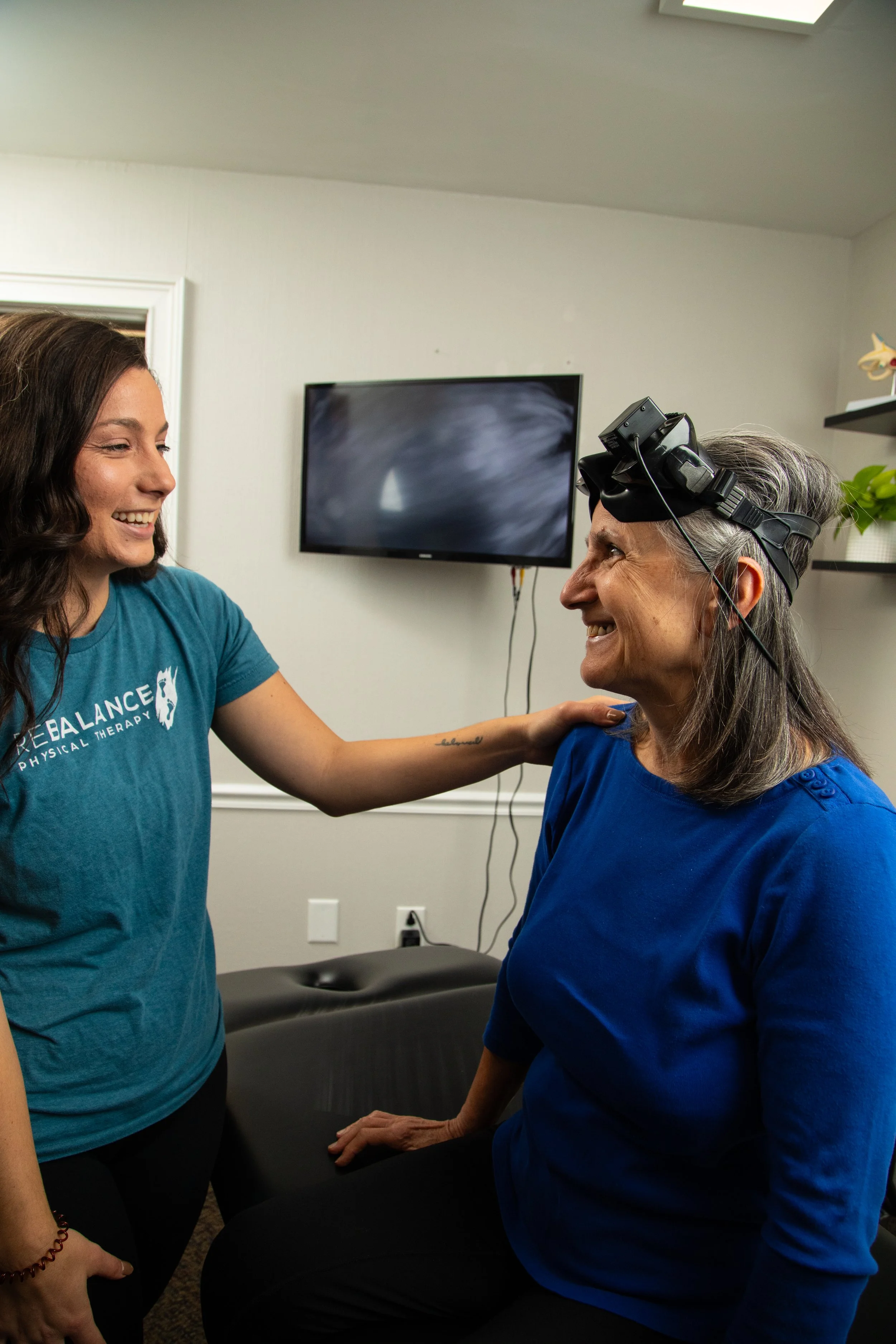What to Know After Starting Vestibular Rehab
If you’ve just started vestibular rehab, congratulations—you’ve taken the first step toward retraining your balance system and getting your life back. But many people are surprised by what they feel during those first few sessions. At Rebalance Physical Therapy, we want you to know exactly what to expect so you can stay confident and motivated throughout your recovery.
1. Feeling Worse Before You Feel Better Is Normal
Your vestibular system—your inner ear, eyes, and brain—has likely been compensating for dysfunction for a while. When therapy challenges those systems, your brain has to relearn how to process motion and position correctly.
That process can temporarily increase your dizziness, nausea, or fatigue, but that’s actually a sign your brain is working to recalibrate. These sensations typically lessen within the first few weeks of consistent therapy.
2. Consistency Is Key
Vestibular rehab is like training a muscle—the more you practice, the faster your brain adapts. Even if you have scheduled visits once or twice a week, your home exercise program is essential. Small, frequent sessions are far more effective than doing everything at once. Your therapist designs these exercises to create small, controlled challenges that drive improvement over time.
3. Progress Looks Different for Everyone
Some people notice dramatic changes within a few sessions; others take several weeks before improvements become consistent. Factors like your diagnosis, overall health, and how long you’ve had symptoms all play a role.
At Rebalance Physical Therapy, we track your progress with quantitative data—like gaze stability scores, balance tests, and RightEye visual tracking assessments—so you can actually see how your system is improving.
4. Your Brain and Body Will Feel Tired
Feeling mentally drained or physically fatigued after therapy is completely normal. Your brain is processing complex sensory input during each session, especially if you’re doing visual or motion-based tasks. Staying hydrated, eating balanced meals, and allowing recovery time will help your nervous system adapt more efficiently.
5. Communication With Your Therapist Matters
The more feedback you share, the better your outcomes. Tell your therapist about any new or changing symptoms, even if they seem minor. This allows for fine-tuning your program to match how your vestibular system is responding. We often adjust intensity, speed, or type of exercise based on this input.
6. You’re Building a Lifelong Skill
Vestibular rehab isn’t just about eliminating dizziness—it’s about training your brain to stay resilient. Once you complete your program, you’ll understand your triggers, know how to recalibrate when symptoms arise, and have the tools to maintain progress long-term.
Takeaway
Starting vestibular rehab can feel challenging at first, but every session brings your brain closer to balance and stability. At Rebalance Physical Therapy, our vestibular specialists use individualized programs, advanced eye-tracking technology, and evidence-based training to help you move confidently again—without dizziness holding you back. Ready to take the next step and go through this process with an experienced vestibular therapist? Schedule a FREE 15 minute phone consultation to see we are a good fit for you!

